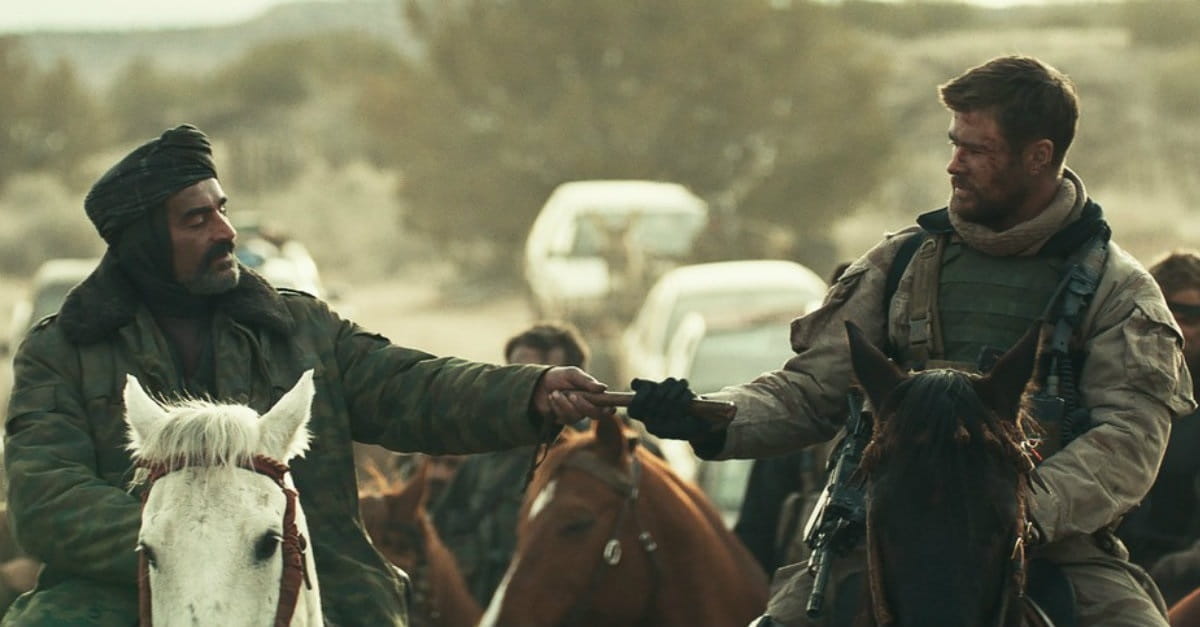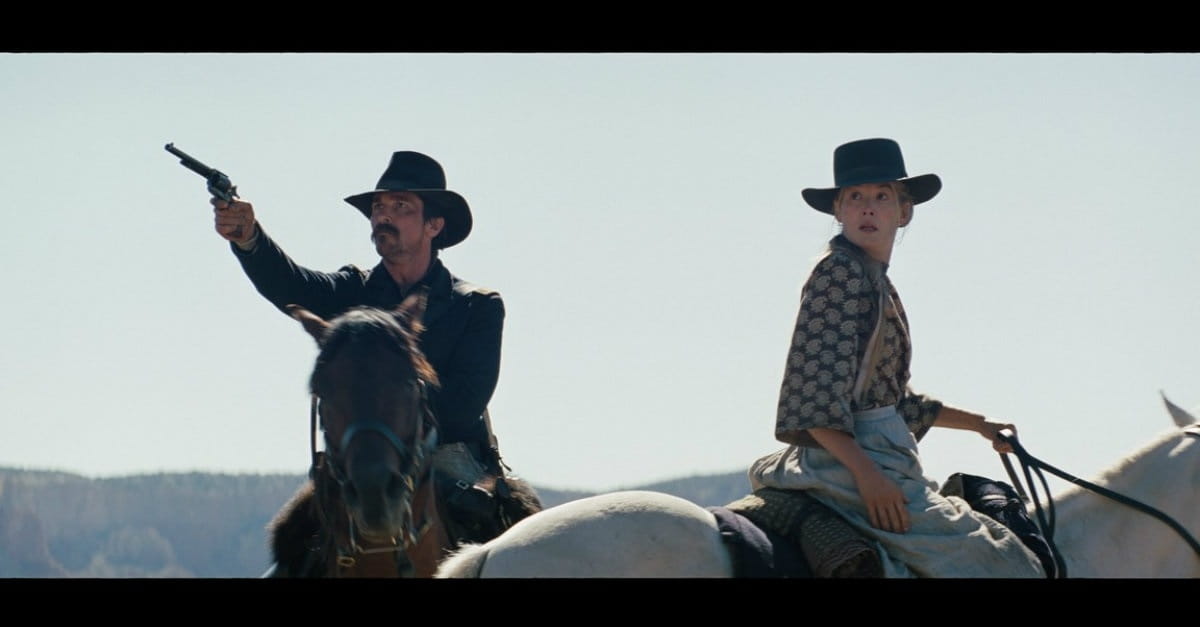Prince of Persia Falls Short of Better Popcorn Movies
- Christian Hamaker Crosswalk.com Contributing Writer
- Updated Apr 30, 2013

DVD Release Date: September 14, 2010
Theatrical Release Date: May 28, 2010
Rating: PG-13 (for intense sequences of violence and action)
Genre: Action
Run Time: 116 min.
Director: Mike Newell
Actors: Jake Gyllenhaal, Gemma Arterton, Ben Kingsley, Alfred Molina, Ronald Pickup, Richard Coyle, Gisli Orn Garoarsson
Summer is the season of popcorn movies—films that entertain on a large scale but offer no lasting message or takeaway value. They're fun, plain and simple, and they give audiences exactly the mindless entertainment they're looking for on a hot day.
But it's useful to remember that some popcorn is stale, popped somewhere else and trucked in, then warmed up and layered with too much artificial topping.
That defines Prince of Persia: The Sands of Time. It has the elements of a successful formula film, but it sells short its best assets in exchange for tedious special effects designed to please those who enjoyed the video game on which the film is based. Prince of Persia spends too much effort recreating a gaming experience rather than developing an affecting story.
It's hard to fault Disney, the studio behind the film, for trying to adapt a video game into a successful film. The studio had wild success adapting one of its theme park rides, Pirates of the Caribbean, into a money machine for the studio. But that film had one great asset—Johnny Depp's performance as Jack Sparrow. Without a Depp to draw on for Prince of Persia, the studio is looking to one of the creative forces behind Pirates, producer Jerry Bruckheimer, in the hopes that he'll recreate the successful formula that worked so well for Disney's earlier franchise.
For decades, Bruckheimer has been churning out bombastic, wildly successful movies. Half the team behind the Simpson/Bruckheimer blockbusters of the 1980s—Top Gun and Beverly Hills Cop among them—the producer dynamo then worked with director Michael Bay on 1990s hits like The Rock and Armageddon, then conquered television in the 2000s with stylish crime dramas like CSI: Crime Scene Investigation. However, the Bruckheimer touch hasn't always spelled commercial or artistic success. His recent attempt to tap the family moviegoing market with G-Force resulted in a grating, mechanical comedy that was a chore to sit through.
Prince of Persia, while livelier than G-Force, is a middling entry in the producer's oeuvre. Without a breakout performance like Depp's to distract from its soulless spectacle, Prince of Persia stays stuck in low gear. Romance and comic relief give the film a few moments of interest, but Persia invests more in videogame-style special effects sequences when it could have developed its story more fully. Bruckheimer apparently thinks such scenes are the key to fidelity with the source material, such as it is, but he would have been much wiser to spend time on characters who could have enlivened an otherwise spotty mishmash.
For the lead role of Dastan, adopted as a young child by the king of Persia, the studio cast Jake Gyllenhaal. He's a prince with a conscience, unsure of the king's invasion of the city of Alamut. According to Prince Tus (Richard Coyle) and the king's brother, Nizam (Ben Kingsley), the enemies of Persia are amassing weapons in Alamut to use against the kingdom. The princess of the city, Tamina (Gemma Arterton), insists that no such activity is taking place, but when the king of Persia (Ronald Pickup) meets an untimely end, suspicions run wild. Someone wanted the king dead, and all eyes turn to Dastan, the one man who questioned the invasion of Alamut.
Searching for answers as to why Alamut was invaded, Dastan discovers a sword that contains the sands of time, the release of which allows the sword-holder to relive the past and thereby recreate the future. Was acquisition of that vital resource the goal of the attack on Alamut?
The plot hinges on the motives of one character who wants to go back in time, and in this, Prince of Persia closely resembles the plot of Shrek Forever After. If only the results here matched the warmth and wit of the latest Shrek movie, which contained life lessons to old and young alike. Prince of Persia aspires instead to be a cautionary tale about the dangers of hunting for weapons of mass destruction and embarking on "foreign adventures."
Certainly, there are moral lessons to be drawn from the ongoing wars overseas, and inserting them into what otherwise could have been a completely mindless, wanna-be summer blockbuster makes Prince of Persia more interesting, not less so, than it would have been otherwise. However, the seriousness of the WMD plotline makes heavier a film that needs more levity. Alfred Molina, as Sheik Amar, gets all the funny lines, hinting at how entertaining the film might have been had the filmmakers focused on character relationships rather than on the videogame-style moments that become increasingly tiresome.
Let's face it: Bruckheimer isn't known for thoughtful dramas. Turning Prince of Persia into a commentary on real-world political missteps makes for a tricky balance, and the film comes nowhere near pulling it off.
A late scene of destruction and peril, while mindless, gives the film a spark it lacks up until the finale, but it's too little, too late. Prince of Persia isn't a terrible film, but it's not a memorable one either. It's worth a matinee at most, and then only if your home air-conditioner is on the fritz. The best that can be said for the film is that while it doesn't approach the effectiveness of Bruckheimer's best work, it's better than G-Force—a low bar, but one that Prince of Persia manages to clear.
Questions? Comments? Contact the writer at crosswalkchristian@verizon.net.
CAUTIONS:
- Language/Profanity: None.
- Smoking/Drinking/Drugs: Dastan is asked if he's been drinking; a group of women drink an unseen liquid.
- Sex/Nudity: Cleavage is shown; kissing.
- Violence/Crime: Man knocked off horse; sword fights; killings and stabbings; the most important duty in serving the king is said to be filling his wine glass; a man is burned to death; a woman slashes a man; skeletons are shown; princess uses a human bone to strike Dastan; rooftop chases; snake attacks; corpses shown; a dagger to the head; knives to the chest; man hit with a shovel; an apparent suicide.
- Religion: Discussion of destiny and of the "gods"; princess prays; city is described as "holy"; the king interrupts his prayers to have a discussion; prayers that the sword of Persia remains strong; a prayer robe is presented to the king; warriors are said to have weapons blessed by God; talk of a new spiritual awareness.














